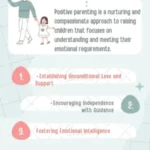In the intricate dance of parenting, the term micromanagement has found its way into discussions around child-rearing. This article delves into the depths of micromanagement parenting, exploring its definition and shedding light on the potential repercussions for a child’s development.
Signs of Micromanagement
Micromanagement parenting is often characterized by over-involvement in daily tasks and a distinct lack of trust in the child’s abilities. From constantly dictating activities to meticulously overseeing every aspect of a child’s life, the signs are subtle but impactful.
The Psychological Impact on Children
The effects of micromanagement on children are profound, leading to the development of anxiety and stress. The constant scrutiny and lack of personal space impede a child’s ability to develop essential decision-making skills, resulting in long-term consequences.
Strained Parent-Child Relationship
Micromanagement erodes the foundation of a healthy parent-child relationship. The erosion of trust and communication is a natural byproduct, leading to rebellion and resentment as children seek autonomy and independence.
Balancing Guidance and Independence
A crucial aspect of parenting is striking a delicate balance between providing guidance and fostering independence. Fostering autonomy in children is vital for their growth, and parents should aim to provide support without imposing control.
The Role of Communication
Open and honest communication is the cornerstone of a healthy parent-child relationship. Building trust through effective communication bridges the gap created by micromanagement, allowing for mutual understanding and respect.
Encouraging Decision-Making Skills
Micromanagement stifles a child’s ability to make decisions. Allowing children to make choices, both big and small, is essential for developing their decision-making skills. Learning from both successes and failures is a crucial part of this process.
Positive Alternatives to Micromanagement
Parents can create a supportive environment by nurturing a child’s independence and recognizing and celebrating their achievements. Implementing positive alternatives to micromanagement fosters a healthy parent-child dynamic.
The Long-Term Effects on Adult Life
The impact of micromanagement extends into adulthood. Children raised under such circumstances may struggle to develop independence and self-sufficiency. Overcoming these challenges requires a concerted effort to break the cycle.
Breaking the Micromanagement Cycle
Recognizing and acknowledging micromanagement behavior is the first step to breaking the cycle. Implementing positive parenting strategies that prioritize trust, communication, and autonomy can help parents transition to a more balanced approach.
Case Studies and Examples
Real-life instances of micromanagement parenting provide insight into the challenges and successes of breaking free from this pattern. Examining these cases offers practical guidance for parents seeking a healthier approach.
Advice for Parents
In navigating the complexities of parenting, tips on avoiding micromanagement and strategies for fostering independence are invaluable. Emphasizing the importance of a supportive and trusting environment lays the groundwork for positive parent-child relationships.
Professional Opinions on Micromanagement Parenting
Insights from child psychologists and experts underscore the consensus on the negative impact of micromanagement parenting. Their professional opinions provide a comprehensive view of the potential harm caused by this approach.
Conclusion
In conclusion, the pitfalls of micromanagement parenting are clear, ranging from strained relationships to long-term effects on a child’s development. Striking a balance between guidance and independence is crucial for fostering a healthy, supportive environment that allows children to thrive.
Frequently Asked Questions (FAQs)
- Is micromanagement parenting always intentional, or can it be unintentional?
- Micromanagement can be both intentional and unintentional, often stemming from a desire to ensure a child’s success.
- How can parents find the right balance between being involved and giving independence?
- Finding the right balance involves open communication, recognizing a child’s individuality, and allowing them space to make decisions.
- Are there cultural factors that contribute to micromanagement parenting styles?
- Yes, cultural factors can influence parenting styles, with some cultures placing a higher value on parental control.
- Can micromanagement parenting be detrimental even if done out of concern for the child’s well-being?
- Yes, excessive control, even with good intentions, can hinder a child’s development and strain the parent-child relationship.
- How can parents transition from micromanagement to a more balanced approach?
- Transitioning requires self-awareness, acknowledging the behavior, and implementing gradual changes, such as promoting open communication and trusting the child’s abilities.
Read also: Helicopter Parenting: Striking a Balance for Your Child’s Well-Being





